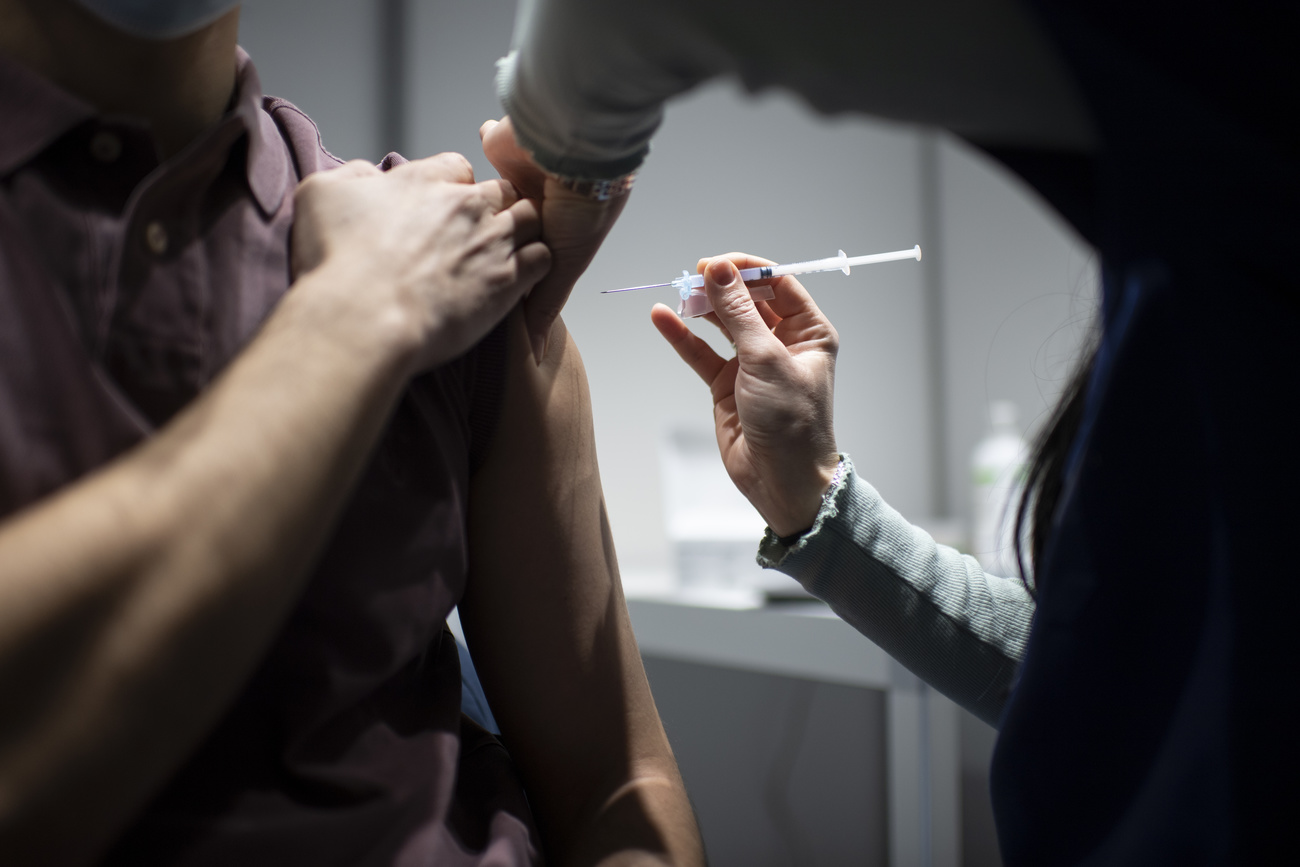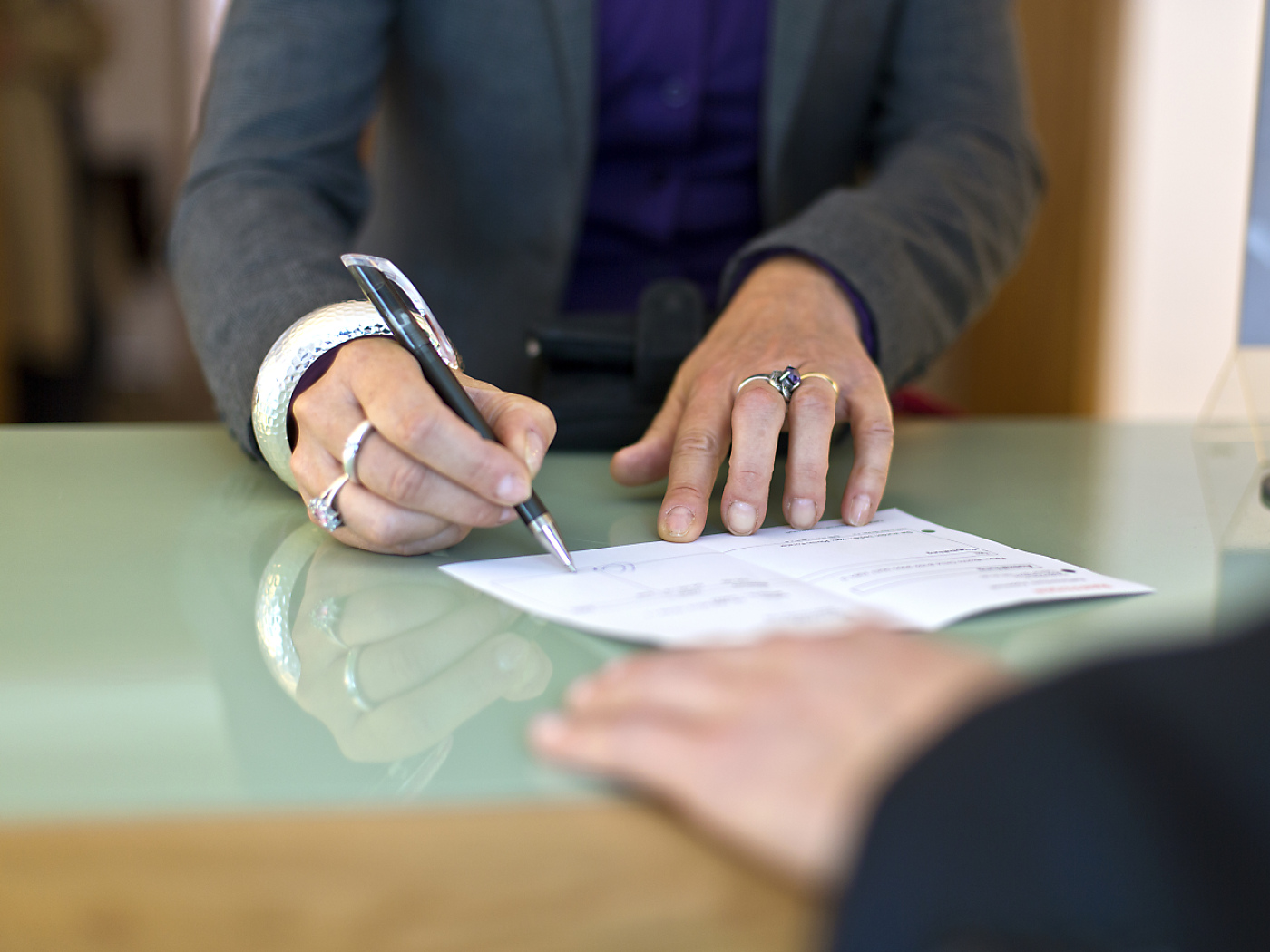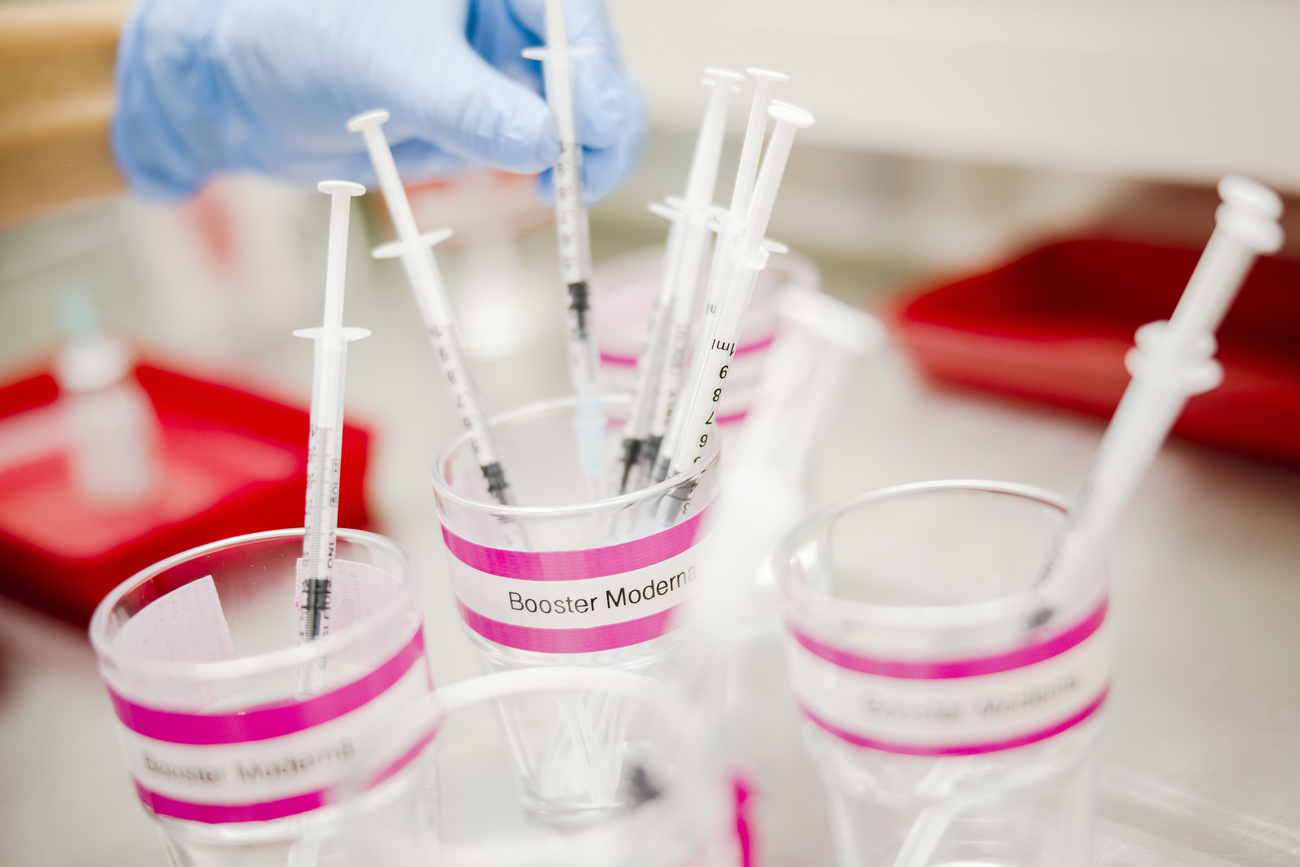Swiss government recommends Covid booster from mid-October

The Swiss authorities have recommended that people aged over 16, especially the most vulnerable, get a Covid-19 booster shot to contain a new wave of infections expected this autumn and winter.
After a rise in new Covid infections in June and July due to new Omicron subvariants, cases have fallen and stabilised at a “relatively low level” in Switzerland, the Federal Office of Public Health (FOPH) saidExternal link on Friday. The number of hospital admissions is also down.
“However, based on experiences so far with SARS-CoV-2, an increase in transmissions of the virus is expected from the fall [autumn] of 2022. The risk of contracting COVID-19 and the burden for the health system could therefore increase again,” it said.
The Swiss authorities therefore recommend as a priority that people aged 65 or over, and those aged 16 to 64 with an increased risk, for example anyone with a pre-existing disease or pregnant women, get a Covid booster shot this autumn. This recommendation also applies to healthcare workers.
For anyone aged 16-64 without risk factors, a booster vaccination “makes sense after individual assessment… to reduce the risk of a serious and rare infection”, FOPH said.
Young people, aged 5-15, do not need a booster jab, as Covid symptoms are generally light or non-existent, according to the authorities. Young people who have already been infected have sufficient antibodies 16 months after getting the virus. No vaccine authorisation has been issued in Switzerland for the under-fives.
The authorities recommend both mRNA Covid vaccines, such as those from Pfizer/BioNTech or Moderna, and the protein-based Nuvaxovid vaccine as boosters. New so-called bivalent mRNA vaccines, which are tailored to the BA.1 version of Omicron and the original virus first detected in China, should be preferred for booster vaccination. But it is still possible to use the current monovalent mRNA vaccine, FOPH said.
Switzerland will receive three and a half million doses of the bivalent vaccine Spikevax from Moderna by the end of September.
Covid certificates will continue to be issued to prove vaccinations, attest to infection or show negative test results. Currently, the certificate is not used in Switzerland, but may be requested by certain countries.
The booster should be given at least four months after the last vaccination or recovery. All vaccinations that meet FOPH recommendations are free of charge. The new vaccination recommendations will come into effect on October 10, 2022.
New coronavirus infections and hospital admissions continue to fall in Switzerland. A total of 14,475 new Covid cases were reported on September 6 for the previous seven-day period, down 5.4% on the previous week. There were 196 new hospital admissions and seven reported deaths.
Around 69% of the population have so far received two doses of vaccine.
Looking ahead, the FOPH said the situation “differs markedly from that of the last two winters”. Currently, 97% of the population have antibodies against SARS-CoV-2 following vaccination or recovery.
“People without risk factors are unlikely to develop severe symptoms this fall,” it said.

More
Coronavirus: the situation in Switzerland

In compliance with the JTI standards
More: SWI swissinfo.ch certified by the Journalism Trust Initiative





















You can find an overview of ongoing debates with our journalists here . Please join us!
If you want to start a conversation about a topic raised in this article or want to report factual errors, email us at english@swissinfo.ch.